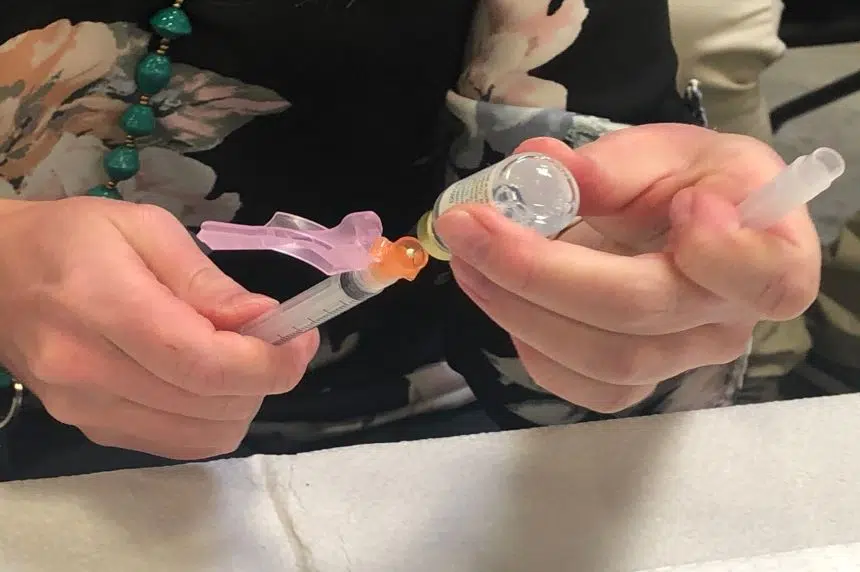There are still a lot of questions surrounding the COVID-19 vaccination process and second doses.
Dr. Joseph Blondeau, a clinical microbiologist and head of clinical microbiology at Royal University Hospital, joined Gormley on Monday to discuss and share the latest research.
Data emerging from the United Kingdom reveals evidence that people are better protected from variants, particularly the Delta variant, if they are double-vaccinated.
“Infections occurred sort of 70 per cent of the time in unvaccinated individuals and only three per cent of the time in vaccinated individuals,” Blondeau said.
“There’s evidence out there stating there is real value in being fully vaccinated. I also think some of the government messaging on the roadmap to reopening the province and reducing some restrictions is also contingent on not only first dose vaccines, but also second dose.”
Blondeau explained that getting fully vaccinated is a crucial component to getting herd immunity high enough.
Originally, health officials stated those who have contracted COVID-19 should wait 90 days before getting vaccinated due to a “natural immunity.” Now it is recommended that those naturally infected should be vaccinated.
“We know with seasonal coronavirus, natural immunity doesn’t last as long as we would hope,” Blondeau said. “By being vaccinated you’re boosting your immune antibodies. That gives you more protection, particularly if it’s true that having a higher antibody response is good for being protected from the variants.
“It will extend the time in which you have antibody protection.”
Blondeau said the reason health officials were advising those who had the virus to wait 90 days is because of concern about vaccine shortages and supplies, which is no longer the issue.
“Unless there is a reason for you not to get vaccinated, or you’ve been advised by your health-care provider, then I would get in line and take the shot in the arm,” Blondeau said.
In regards to mixing and matching vaccines, two recent studies from the U.K. and Spain say there aren’t any safety concerns if your first jab doesn’t match your second.
“The data showed that having one (vaccine) and following up by the other led to a very robust antibody response,” Blondeau said. “There were no additional side effects with the dose of your first vaccine.
“Even though the delivery mechanism of the vaccine might be slightly different, it’s still the same protein that’s being targeted. I think this is reassuring, especially if we were to run into supply chain issues as a result of scaling back production or some manufacturing nightmare. So I think all of that data is very, very positive.”
Blondeau’s message to everyone is to get your second dose, no matter if it matches your first or not.
“Regardless of what it is, if you’re getting AstraZeneca (AZ) followed by AZ, or AZ followed by Pfizer, you will have a good antibody response and will be protected,” Blondeau said.











